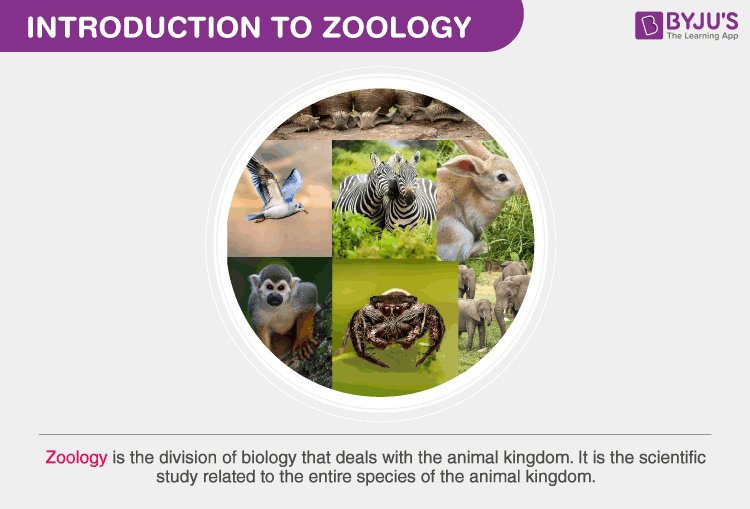Introduction to Zoology

Zoology is the branch of biology concerned with the study animals and animal kingdom. It is also known as animal biology. The study of zoology includes the interaction of animal kingdom in their ecosystems such as classification, habits, structure, embryology, distribution, evolution, and extinct species.
Zoology is the division of biology that deals with the animal kingdom. It is the scientific study related to the entire species of the animal kingdom.
An ancient Greek philosopher, Aristotle, was a first-person to broadly classify the living things in the 4th century BC. Firstly he divided living things into animals and plants and then continued with his further classifications. Later the words like biology, botany, and zoology came into existence.
The study of zoology includes animals physiology, their behaviour, and their interaction with other species in their environment. It is a huge course that includes the distribution of every animal species on earth including extinct animals. Apart from the animal kingdom and ecosystem, zoology also explores the new areas of research.
Later, Aristotle divided animals into two classes: one with red-blood and another without such as insects and crustaceans. Then, he further classified creatures into those who were able to walk, flow and swim.
The classification by Aristotle was followed until the 16th century, during the Age of enlightenment, scientists finally began to research closely. Now, zoology has become much more complex, where the living things are divided into five kingdoms, in which animal kingdom themselves divided into several smaller categories of Phylum, Class, Order, Family, Genus and, finally, Species.
These developments were synthesized in Charles Darwin’s theory of evolution by natural selection. In the year 1859, Charles Robert Darwin presented the theory of organic evolution along with its observational evidence.
Branches of Zoology
The study of animal life is ancient, but its scientific incarnation is relatively modern. Until the comparative anatomical study on morphographs by Hunter and Cuvier, the modern areas of zoological investigations have occurred. Gradually zoology expanded behind the comparative anatomy to include the following sub-disciplines:
- Zoography, it is also known as descriptive zoology.
- Comparative Zoology.
- Soil Zoology.
- Mammalogy.
- Comparative anatomy.
- Herpetology.
- Animal physiology.
- Entomology.
- Behavioural Ecology.
- Ornithology.
- Ethology studies animal behaviour.
- Invertebrate and vertebrate zoology.
- Taxonomically oriented disciplines identify and classify species and study the structures and mechanisms specific to those groups.
For more detailed information about Zoology and its disciplines, visit Byju’s Biology.


i heard about the byjus app ,it seem’s to be good.
I like the app has taught me so much. Thank you.
I heard about this app, it seems good